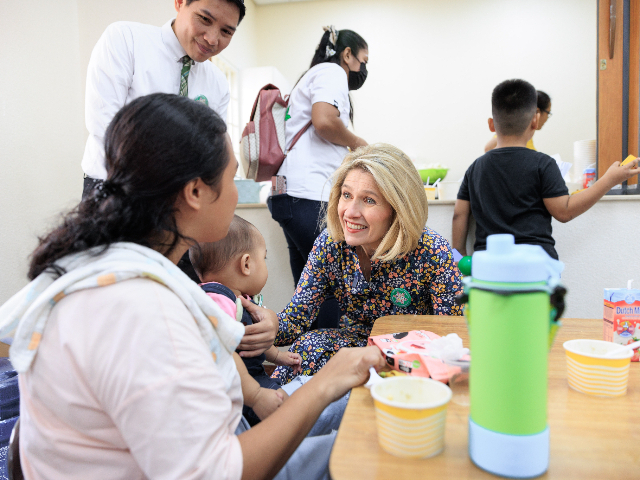The Church of Jesus Christ of Latter-day Saints has contributed $8 million to support the United Nations World Food Programme (WFP) home-grown school meals program in Haiti, where half of the population struggles to find enough to eat.
WFP stated Tuesday, September 24, that the grant from the Church will support its ongoing work with local governments and partners in Haiti’s Artibonite and Centre departments to scale up school meals that use food from local smallholder farmers.
In the upcoming 2024–25 school year, it plans to provide school meals to nearly 500,000 students, 70% of which will be made entirely with Haitian-grown ingredients purchased from local farmers.
| Temple Square is always beautiful in the springtime. Gardeners work to prepare the ground for General Conference. © 2012 Intellectual Reserve, Inc. All rights reserved. | 1 / 2 |
“As followers of Jesus Christ, we strive to care for those in need as He would,” said Blaine R. Maxfield, Managing Director of the Church’s Welfare and Self-Reliance Services. “These efforts in Haiti will help ensure that children have access to the nutrition they need to focus on their education, while at the same time strengthening communities by sourcing meals locally.”
The organizations have collaborated for more than a decade, said Barron Segar, World Food Program USA President and CEO. “The Church continues to serve as an essential collaborator, supporting WFP’s global operations during emergencies, while simultaneously stepping up to build community resilience.”
In 2024 alone, the Church has generously supported WFP in giving food assistance in multiple countries — from delivering emergency food in Ukraine and Nigeria, to feeding school children and ensuring mothers and their newborn children have access to the right nutrients in Chad, Ecuador, Cuba, Guinea, Honduras and Peru.
And the Church gave $32 million to the World Food Programme to help provide food and critical assistance to 1.6 million people in nine countries in September 2022. Additionally, WFP has used Church funds to provide food and other critical assistance to provide humanitarian aid to the world’s most vulnerable people, including mothers and young children, in 46 countries.
“In addition to supporting work on the ground in Haiti, we are grateful for the Church’s generosity in helping us serve thousands of people in other countries around the world this year, as we combat the world’s global hunger crisis,” said Segar.

